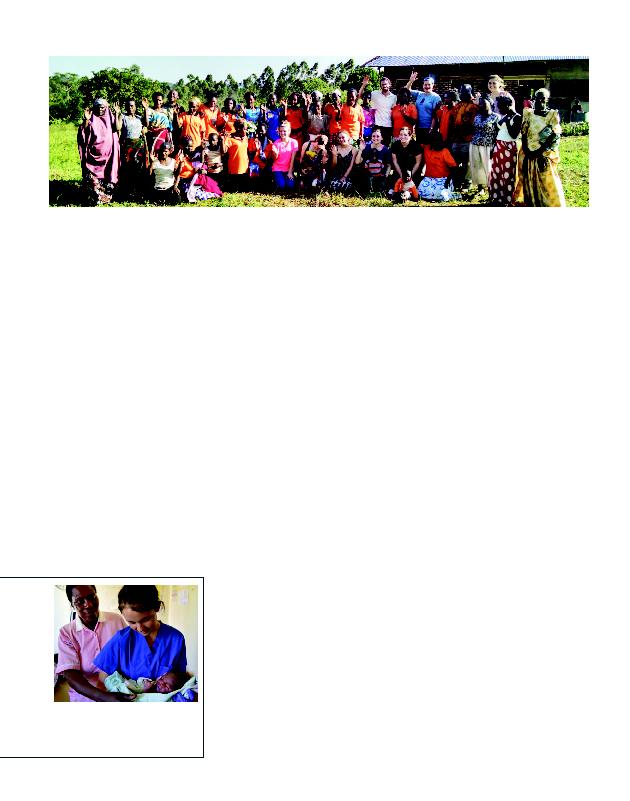
projects for the group. The organization is a cooperative of people who have lost their partners to HIV/AIDS and have been discrimi-
nated against by their communities because they are living with the virus.
ics at West Virginia University, where
he's focusing on development and be-
havioral economics.
ter, so she used the loan to buy her
stock in bulk. This strategy allowed her
to make a small profit, which she then
used to buy chickens, Rodriguez ex-
plained. Caring for the chickens and
selling them and their eggs, she was ul-
timately able to pay her tuition at a
local teachers college. Now, she is a
principal at a secondary school in the
town of Kyotera, while her son runs
the banana-pancake business in town.
continue to be involved through a cam-
pus club. Samantha Terhaar, '18, is one
of a number of pre-med students who
have gone to Uganda to learn more
about global health as EIA prepares to
open a permanent health clinic in the
Bethlehem community.
made me realize that I don't want it to be my
last," said Terhaar, a bioinformatics major
from Olean who intends to be a physician.
"Personally, I believe that health care is a
right that everyone is entitled to; therefore, I
have a major interest in global health and
bringing care to areas where it is not readily
available."
help promote the clinic, a day was held for
area residents to get free HIV testing and free
malaria medication.
1,000."
ings.
create sustainable projects so they can ulti-
mately be continued without our assistance,"
said Terhaar.
said.
age children at the Bethlehem Parents School
had poor vision.
after learning about the organization from a
friend. She knew that to pursue projects that
were responsible, culturally conscious, and
sustainable, she needed to immerse herself in
Ugandan communities. So, coordinating with
Rodriguez, she planned a trip to Uganda that
included volunteering in a few public hospi-
tals in Eastern Uganda and then spending
about a week in Bethlehem.
midwives, but more than anything I listened
and observed," she said.
School of Medicine as part of St. Bonaven-
ture's Dual B.S./M.D. Program with GW and
ultimately become an academic global health
physician.
practices integrated in educational institu-
tions, especially primary and secondary
schools. This was evident at the Bethlehem
school where students almost never received
proper care unless they were severely ill and
taken to a clinic.
to come up with a program that would inte-
grate student health records and health
screenings into the school curriculum.
search project in summer 2016 to test their
vision and color blindness using a mobile
phone app. She found that indeed there was
a need for corrective lenses in 12 percent of
the 72 students tested. So in January, some
of the SBU students coordinated with an
eye doctor to visit the school and perform
full eye exams and provide glasses to stu-
dents who had been screened.
Global Health & Innovation Conference at
Yale, the largest peer-reviewed global health
conference in the world. At the conference,
she was exposed to other research underway
on global health, heard about new ideas and
innovations from various sectors of interna-
tional development, and connected with oth-
ers in the field.